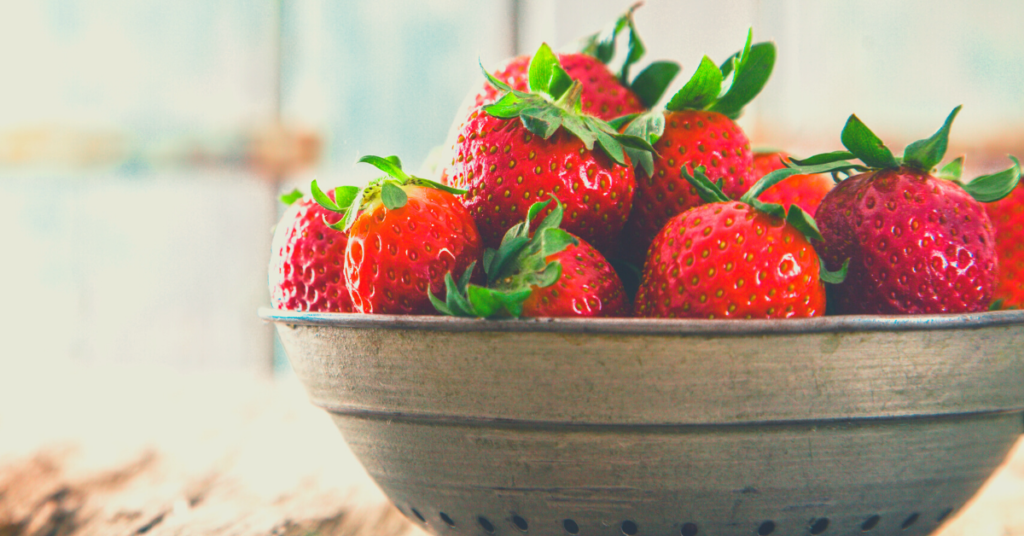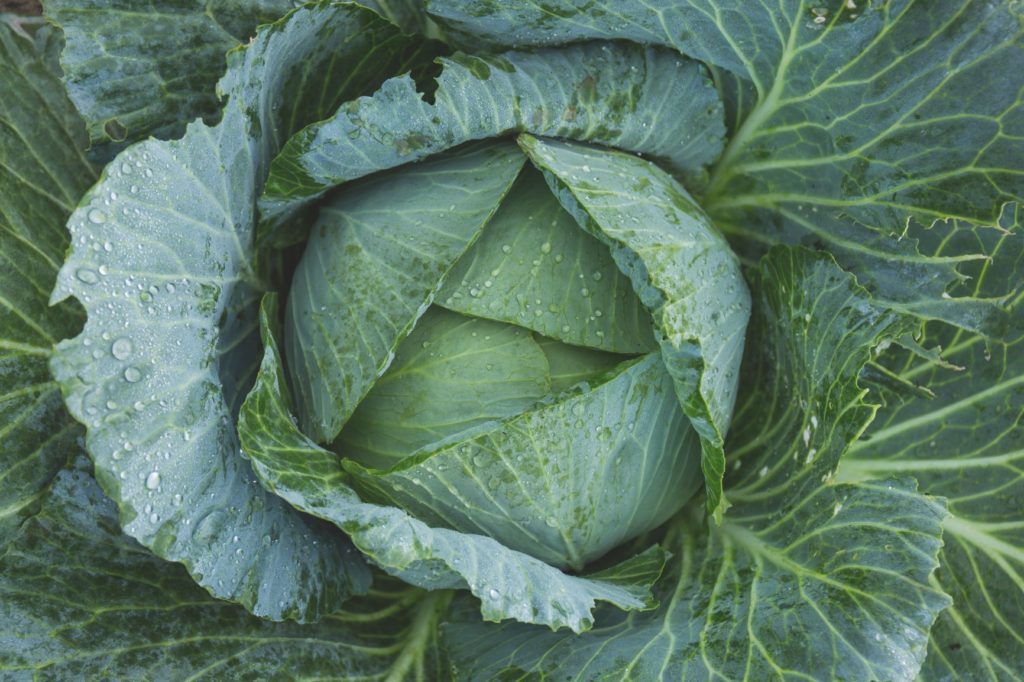Late spring and early summer is prime time for strawberries! This delicious fruit carries many health benefits along with its delicious sweetness.
Strawberries might be my favorite fruit! It is hard to beat a sweet and juicy red, ripe strawberry as a delicious treat. A perfectly ripe peach gives it a good run for the #1 slot.
While strawberries are delicious all on their own, they are just as good made into a dessert or jelly.
Did you know that strawberries are the only fruit with their seeds on the outside?! Kind of interesting, huh?
Besides a great taste, strawberries provide a host of health benefits because of the anti-inflammatory nutrients and key antioxidants they provide.
Nutrients found in strawberries
Strawberries are rich in vitamin C to support your immune system and skin health.
Folate is also plentiful. This b vitamin plays a major role in tissue growth and cell function, making especially import during preconception and pregnancy.
Manganese and potassium are present in strawberries. These trace elements support many processes in the body, such as regulating blood pressure and ensuring proper use of calcium.
They have at least twenty-five types of antioxidants form the anthocyanins family that support heart health.
Strawberries may fight bacteria and reduce the risk of cancer because they have are full of the antioxidants ellagitannins and ellagic acid.
The seeds of the strawberry contain small amounts of omega-3 fatty acids. While it is just a small amount, any additional omega-3 in the diet is beneficial to health. Omega-3 helps offset the larger amount of omega-6 fat that most people consume.
Health Benefits of strawberries
Including strawberries in one’s diet has been shown to reduce the risk of many chronic diseases. In particular, they may improve heart health, lower blood sugar levels and help prevent cancer.
Regarding heart health, eating 2-4 cups a day is associated with improved blood pressure and HDL(good) cholesterol. Strawberries may also reduce LDL(bad) cholesterol, reduce inflammation, decrease oxidative stress, and more.
Strawberries are low in sugar, having a glycemic index count of just 40. This means that the berries have little effect on your blood sugar levels, no giant spike followed by a crash causing you to reach for something sweet again to rebalance.
In addition, studies are showing that eating strawberries with a meal may help to regulate insulin and blood sugar levels by slowing down the digestion of glucose.
Since they contain antioxidants that fight oxidative stress and inflammation, eating them also may also reduce the risk of cancer. They also have been shown to inhibit tumor formation in human liver cancer cells.
How to pick and store the perfect strawberry
When buying strawberries in the grocery store, chose organic. These berries are one of the most contaminated fruits. The pesticides used to sterilize the fields and prevent pests leaves a residue on the berries. Pesticides are harmful to humans, not just the pests they aim to control.
If you are lucky enough to have a local source for strawberries, great! Talk with the farmer about his growing practices. He may not carry an organic certification, but might be avoiding the use of harmful pesticides on his crop.
Aside from being less contaminated, organic strawberries contain more nutrients. This enhances all the health benefits I talked about earlier.
Look for strawberries that are completely red with a nice shiny gloss. This will make sure you are getting the tastiest and most nourishing fruit possible! Avoid any berries that have damage or mold.
You can store strawberries on the counter for 2-3 days. They will not become riper but will become more aromatic and flavorful. Their antioxidants will also become richer.
When freezing strawberries, dust them with powdered vitamin C before hand to help preserve more nutrients.
If you do have to purchase non-organic strawberries, or any produce, be sure to rinse them before eating.
I like to give mine a soak in a sink full of cold water with about a cup of vinegar and a few drops of lemon essential oil. I let my produce soak for 5-10 minutes and then rinse well.
For strawberries, be sure to dry them thoroughly and store in an airtight container if you are not going to eat immediately.
Strawberry Recipes to try
This gluten-free crisp from Fed and Fit looks so good!! Strawberry and rhubarb work so well together!
When the weather gets warmer, I love a good salad. This salad sounds very refreshing with the strawberry vinaigrette.
Who doesn’t love a good fruit salad?! The citrus mint dressing for this one has me drooling!
Strawberries in a muffin?? Yes, please! Check out this great sourdough muffin recipe.

What is your favorite way to eat these nutrient packed berries? Let me know in the comments below.


